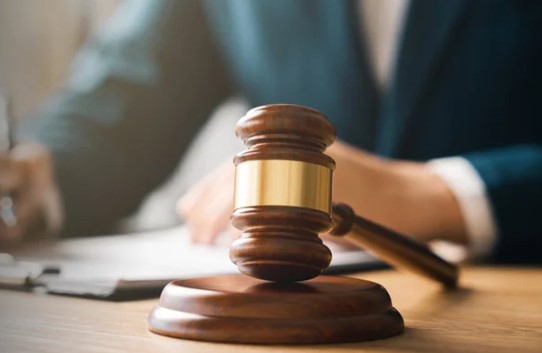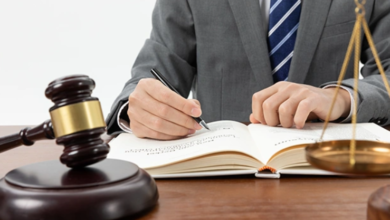What Do Probate Solicitors Do?

Probate solicitors handle the legal process that follows someone’s death, especially with the distribution of their estate according to their will or even in the absence of a will. Many people believe that probate solicitors only deal with wills. In truth, they handle a range of issues, including intestacy or when someone dies without a will, disputes, and the administration of trusts.
A report shows that Americans pay up to $2 billion a year for probate, but they can avoid most of that cost with careful estate planning. While it is possible to handle probate without legal help, the process is far more complex. A study by UCLA shows that around 40% of probate cases involve some form of dispute.
That’s where a probate solicitor can help and make sure that the whole probate process is done correctly, possibly saving you time and money. As executors and administrators, you can let probate solicitors assist you through the probate process and make sure the administration of the estate is handled efficiently, accurately, and in compliance with the law.
Their responsibilities aren’t just about paperwork and formalities. Learn more about their roles, responsibilities and other benefits they can bring to the table.
Probate Solicitors: An Overview
When considering probate solicitors, it’s important to know what they do. These legal professionals assist people with the process of probate, which involves validating a will, distributing assets according to the deceased person’s wishes, and guiding you through the complex legal requirements involved in probate proceedings.
Probate solicitors can help in many aspects of the probate process, such as preparing and filing necessary documents, resolving disputes among beneficiaries, and making sure that the estate is distributed correctly. With the help of a probate solicitor, you can handle the legal complexities of probate more effectively and be certain that the wishes of the deceased are carried out properly.
According to Atlanta probate attorney Delisa Williams, they can also offer guidance on inheritance tax issues, managing debts of the deceased, and handling any challenges that may come up—lessening the stress and confusion often associated with probate proceedings.
Estate Administration Responsibilities
Probate solicitors are in charge of managing the estate of the deceased after they pass away. One of their main jobs is to identify and gather all assets belonging to the deceased, such as properties, investments, and personal belongings. They must also check and manage any outstanding debts and taxes owed by the estate.
They’re also responsible for all legal documents, including the deceased’s will, and make sure that they are filed correctly with the probate court. They oversee the distribution of assets according to the will or intestacy laws if there’s no will present. This involves working with financial institutions, government agencies, and other parties involved in the estate.
Probate solicitors give guidance and support to the executors or administrators of the estate, helping them with the legal procedures and fulfilling their duties efficiently. By handling these estate administration responsibilities with precision and care, probate solicitors help make the probate process smoother for everyone involved.
Asset Distribution Guidance
Asset distribution guidance is handled by probate solicitors. These legal professionals assist in the proper allocation of assets according to the deceased person’s will or the laws of intestacy if there’s no will. Probate solicitors help handle asset valuation, debt settlement, and distribution among beneficiaries. They work to make sure all assets are taken care of and distributed correctly, following legal requirements and the deceased’s wishes.
During asset distribution, probate solicitors can give guidance on identifying and valuing assets, including real estate, financial accounts, personal belongings, and investments. They assist in resolving any disputes that may arise among beneficiaries regarding asset distribution. Probate solicitors also help in transferring assets to the rightful heirs, dealing with creditors, and addressing any tax implications related to asset distribution.
Resolving Disputes and Challenges
Probate solicitors help resolve disputes and challenges that may arise during the probate process. When conflicts happen among beneficiaries or if there are disagreements regarding the validity of the will, probate solicitors step in to help mediate disputes, and negotiate settlements while making sure that the deceased’s final wishes are carried out effectively.
In cases where challenges to the will surface, such as claims of undue influence or lack of capacity, probate solicitors work to protect the interests of all parties involved. They investigate the validity of the claims, gather evidence, and represent their clients in court if necessary.
Probate Court Representation
When disputes get out of hand and require legal intervention, probate solicitors can offer representation in court to protect the interests of everyone involved. In probate court, these solicitors will advocate for their clients, whether they’re executors, beneficiaries, or other stakeholders. Probate court representation involves preparing and filing legal documents, presenting arguments before the court, and negotiating settlements if possible.
Probate solicitors will make sure that their clients’ rights are upheld during court proceedings. They work diligently to gather evidence, interview witnesses, and build a strong case to support their clients’ positions. Probate solicitors may engage in mediation or alternative dispute resolution methods to reach a resolution outside of court, saving time and reducing costs for all parties involved. With them on your side, you can have peace of mind and increase the chances of a favorable outcome in probate disputes.
Conclusion
Probate solicitors handle the legal process of administering an estate, distributing assets, and resolving disputes. They give guidance and support during a challenging time while making sure that the deceased’s wishes are carried out properly.
These professionals are experts in probate law and can help clients with probate court proceedings. If you need help with probate, a probate lawyer can give you the knowledge and advice you need.




